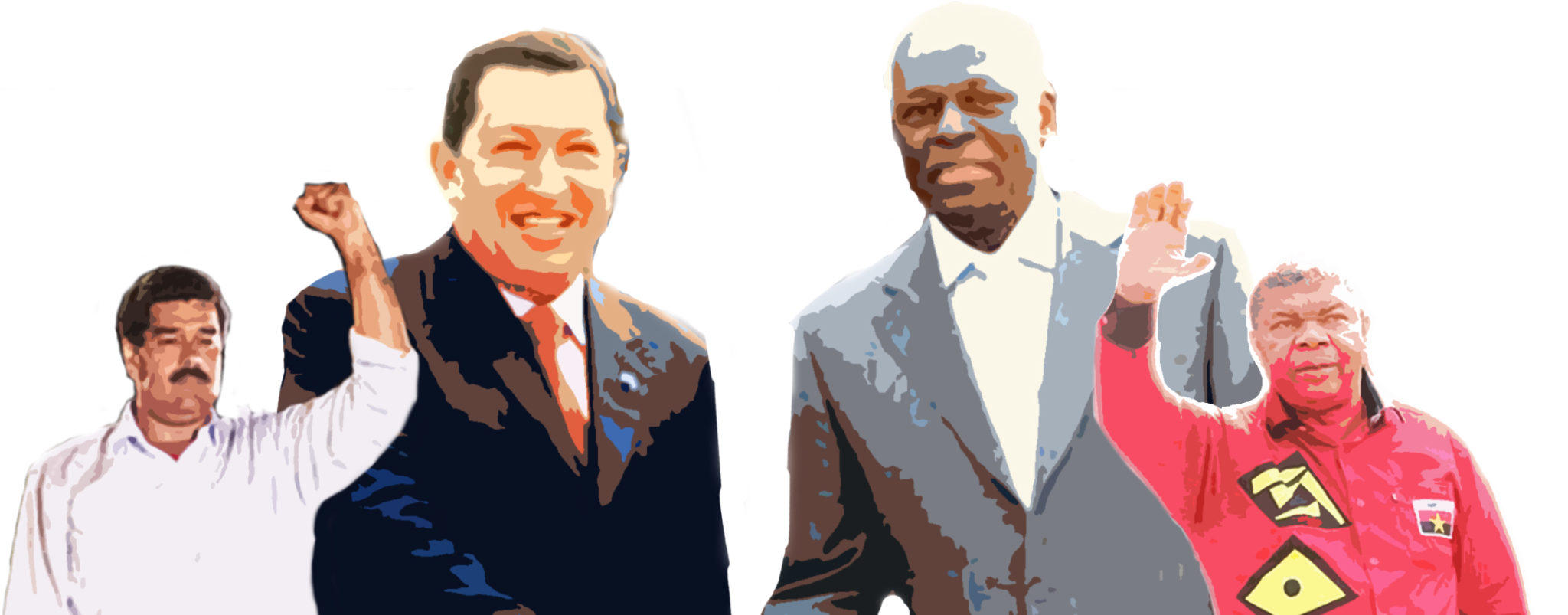


A joint initiative between the University of Bergen
and CMI – Chr. Michelsen Institute
Angola and Venezuela: Oil-Fueled Corruption and Authoritarian Elections
Svein-Erik Helle in conversation with historian and sociologist Margarita López Maya and economist Alves da Rocha.

Two of the most oil-rich countries in the world have recently gone through dramatic political and electoral changes. In both countries, the crisis has brought economic recession and impoverishment. Corruption has been notoriously associated with both countries.
In Venezuela, the long-running battle between a multifaceted opposition and the incumbent Chavismo regime led by President Maduro culminated in separate referendum organized by the opposition and elections organized by the incumbent on the issue of constitutional revisions. The two referendums, and the establishment of the constituent assembly, further polarized the country. Around much controversy, regional elections were held on October 15.
In Angola, President José Eduardo dos Santos stepped down as MPLA’s candidate for the 2017 elections, paving the way for successor João Lourenço to win the elections and become the first new President of Angola in 38 years. The first ever constitutional transfer of power also exposed the deep divisions within Angolan society – as the opposition rejected the elections as invalid.
In this Breakfast Forum, we will look at similarities and differences between these oil states. How have they responded to the economic downturn following the recent decline in oil prices? How do we interpret the ruling regimes’ policy adaptations, assuming they seek to stay in power, ensure opportunities for elite enrichment – and also to improve the situation for impoverished populations? Have authoritarian elections been helpful?
Margarita López Maya is professor at the Central University of Venezuela and researcher at the Centro de Estudios del Desarrollo – CENDES.
Alves da Rocha is professor at the Catholic University of Angola and director at the Centro de Estudos e Investigação Científica – CEIC.
Svein-Erik Helle is a Post-Doctoral Research Fellow at the Chr. Michelsen Institute and Department of Comparative Politics at the University of Bergen.

